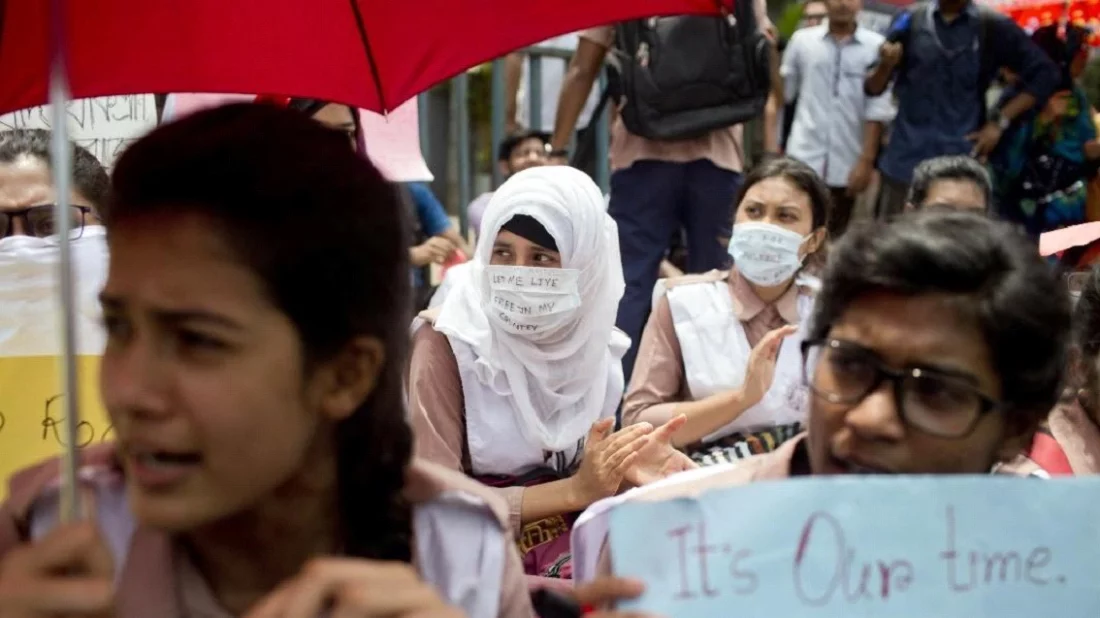
M Adil Khan
According to the Italian social scientist Vilfredo Pareto changes in regimes and revolutions occur not when rulers are overthrown from below, but when one group of elite replaces another; where the masses simply, willingly or inadvertently, help one elite group push the other to take over and secure their own interests rather than those of the masses — the foot soldiers of revolutions.
But there are some exceptions, and Bangladesh’s recent mass uprising is one such exception.
It had no political affiliations, and no known political leader leading the uprising. It originated organically, out of years of accumulated anger against institutionalized injustices and brutalities.
The 2024 uprising is also unlike most revolutions where the leaders of revolution take over the reign. The students instead entrusted the responsibility to govern and lead the reforms and transform Bangladesh into a democratic, fair society, to Dr Muhammad Yunus.
The revolutionaries expect Professor Yunus and the interim government (IG) to first stabilize the country and then replace the immediate past toxic Bangladesh with a new Bangladesh where democracy, freedom, accountability, and justice would be the governance norm.
IG’s 100 days
Over 100 days have passed since the IG took over, and while they have made good headway, many challenges still remain.
They successfully steadied the collapsing economy, but the challenges of inflation, scarcity of essentials, and joblessness remain; they restored some semblance of law and order, but the police are in disarray — having been highly politicised with pockets of resistance against change.
IG’s most impressive accomplishment has been in international relations — and this is mainly because of the international stature of Dr Yunus. The international community has expressed their full support to rebuild Bangladesh. But more importantly, the IG has decoupled Bangladesh from India’s extortionist unequal exchange relations
Six commissions have been formed to spearhead reform proposals that include reform of the constitution, the judiciary, the electoral system, state administration, the police, and corruption.
Stop the use of democracy to kill democracy
However, Bangladesh has a poor record of maintaining democracy. Loopholes in the Constitution have allowed the deposed ruling party to use its overwhelming majority in the parliament and alter the existing fundamental tenets of democracy twice.
Once in January 1975 when the ruling party used its two-third majority in the parliament to transform the parliamentary democratic system into a one-party dictatorship.
And again in 2009, when the same ruling party used its two-third majority in the parliament to scrap the neutral care-taker government (CTG) system that delivered free and fair elections in past years. This gave the ruling party the power to “win” all the subsequent “elections” and in the process, morphed into a corrupt autocracy.
This implies that normal democratic tools are not sufficient to safeguard democracy in Bangladesh. Therefore, it is important that the constitutional reform seals all loopholes of using democracy to kill democracy.
Corruption control: Keep crooks out
While reform proposals on corruption control must include stringent provisions in public accountability, efforts may also be made to introduce measures that help keep the crooks out of the government and from politics. Even the best systems can’t produce results if they’re run by crooks.
South Korea’s anti-corruption measures has introduced a provision called, the “Personnel Verification System (PVS), that bars people with questionable track record to enter the government and politics which has helped reducing corruption dramatically in this Southeast Asian nation
The IG’s corruption control measures may consider incorporating similar provisions like that of South Korea’s PVS that would help keep the crooks out of the government and politics and thus prevent corruption.
Making reforms future-proof
It is important that draft proposals are finalized as soon as possible. Preferably through a broad-based consultative process and then put to a referendum to obtain citizen approval and ensure legal authority to mandate future governments to continue operating the reform frameworks.
Furthermore, before doing elections and handing over power, a reform implementation and oversight commission should be formed. Again, done through citizen assent, thereby empowering the commission to review and give feedback on compliance or otherwise of reforms to the parliament.
Hurdles: The cultist mindsets
The main obstacles against successful implementation of reforms are often the people themselves, the expected beneficiaries of the reforms.
In Bangladesh, people are either too impatient or there are those who, no matter what happens, stick to their chosen political affiliations and resist change.
This kind of politically biased behaviour is called the phenomenon of “consenting publics.” A ubiquity in Bangladesh, it is a unique human behaviour that the late poet Shamsur Rahman described quite aptly in these words (translated) “Ye, the flock of sheep, how unthinking you all are; when asked to go to the right you march to the right; when shoved to the left you move to the left; Oh the mindless, the clueless flock of sheep!”
“Consenting publics” are the biggest hurdle against reform. It is thus important that IG takes required measures to prevent outside interferences and plans an advocacy programme to change the mindset of the “consenting public” to a constructively critiquing public.
The IG must be very vigilant against the consenting publics and their vilification campaigns and make extra public relations measures to educate people and dispel misinformation and disinformation spread by these elements that threaten reforms.
At the same, this is about time the party loyalists rise above politics and make the country their priority. They also have the responsibility to contribute to reforms and discard the wrong and stand by the right.
Indeed, the journey to a reformed and better Bangladesh is long and arduous, but the journey must continue till the finish line is reached, for if we do not, the consequences are too grim.
source : dhakatribune
